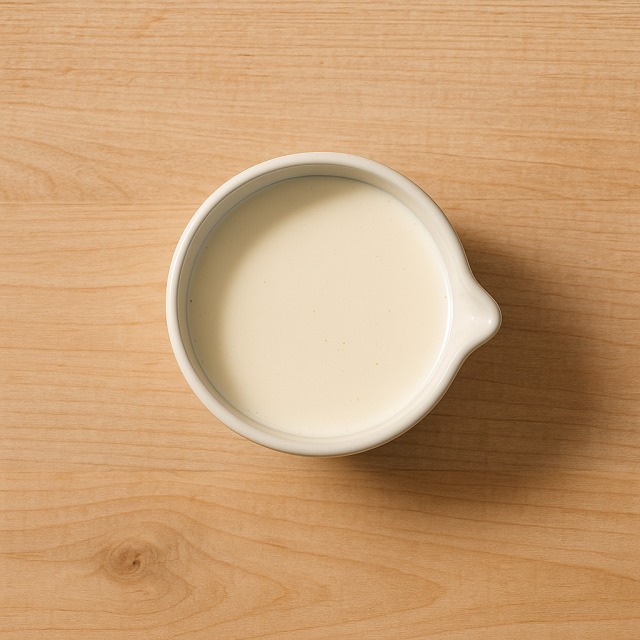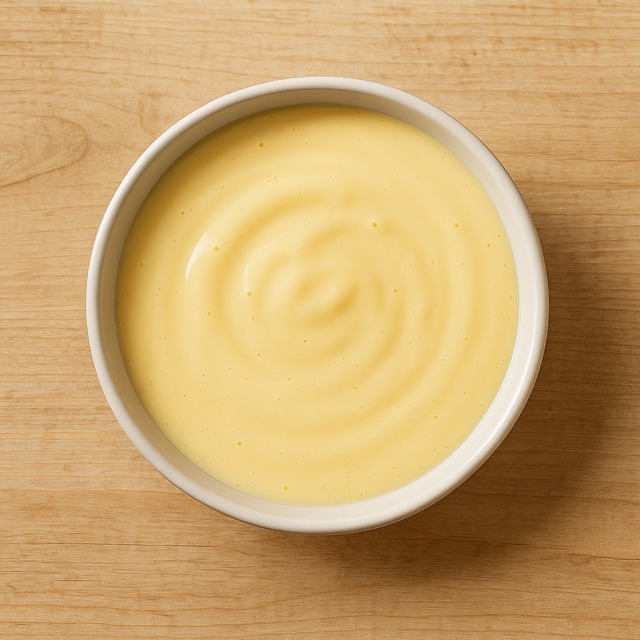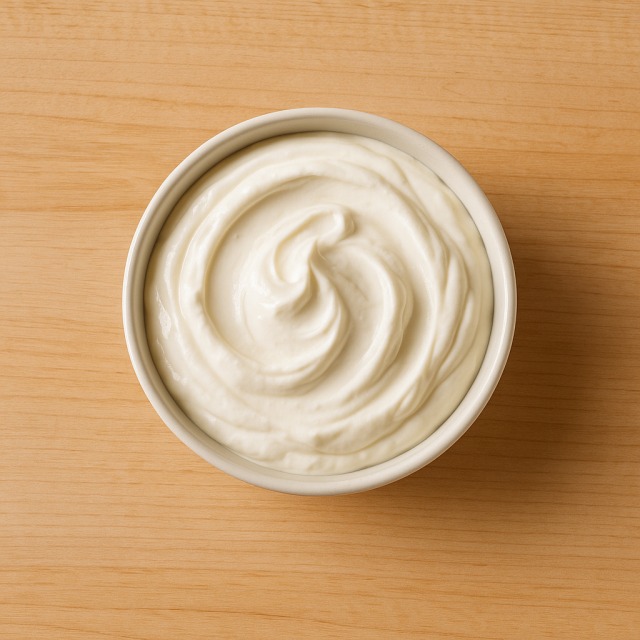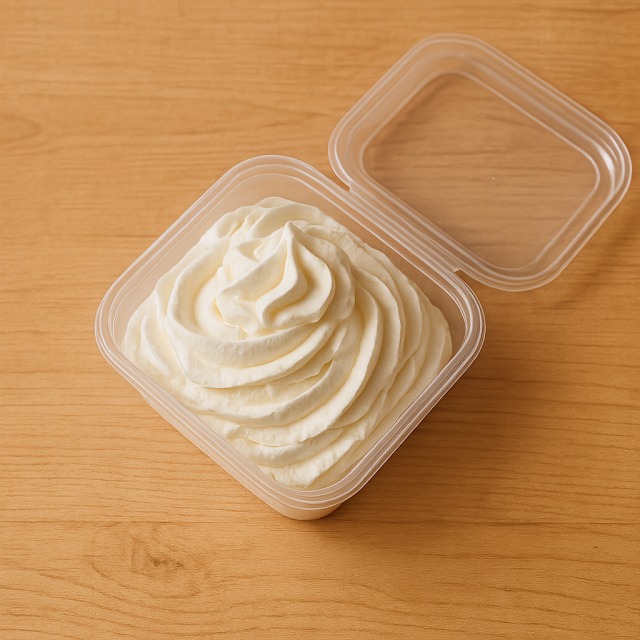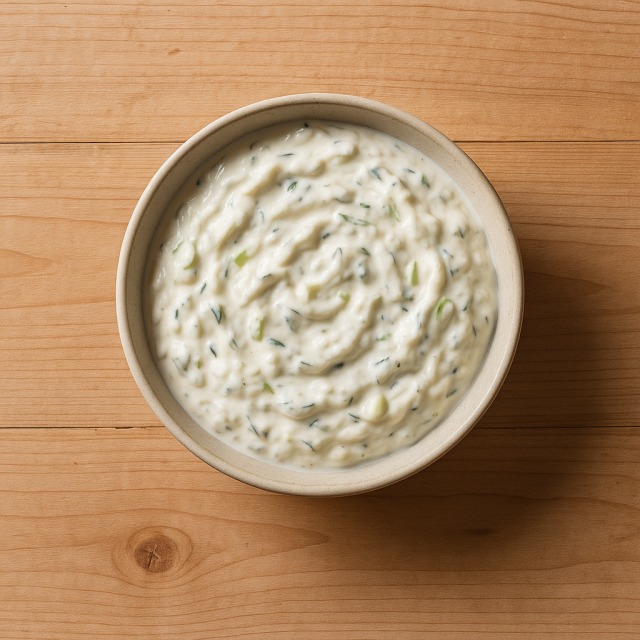Calorie Chart / Seasoning & Sauces / Crème fraîche - Light
How Many Calories Are in Light crème fraîche?
Calculation of the nutritional value & Recommended Dietary Intake of light crème fraîche
For ml and a calorie requirement of kcal
| Calories 31 kcal | Proteins 0.5 g | Lipids 3 g | Carbohydrates 0.5 g |
| 2% | 1% | 4% | 0% |
Health benefits of light crème fraîche
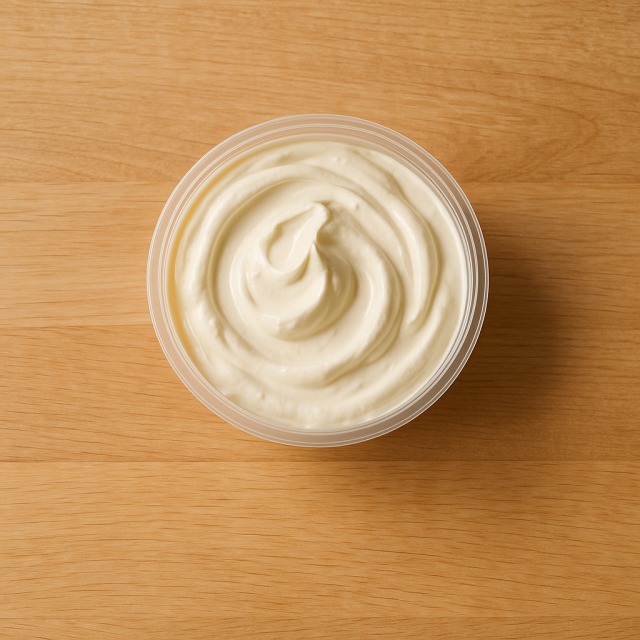
Light crème fraîche - 100ml
Calories 204 kcal
Proteins 3 g
Lipids 20 g
Carbohydrates 3 g
Light crème fraîche is a moderate-calorie dairy condiment, delivering fewer calories than traditional cream while maintaining a pleasant tang and smooth texture. Since calories are important for both weight loss and sports nutrition, this lighter option is often chosen when calories need to be monitored without sacrificing flavor or adding unnecessary calories compared with other dairy products packed with calories.
Even with reduced fat, it supplies fat-soluble vitamins A and D that contribute to vision, immunity, and calcium absorption. It also offers vitamin B12 and riboflavin, plus minerals such as calcium and phosphorus, essential for bones and teeth—all without the hefty calories of full-fat cream.
The product originates from the French tradition of fermenting cow's milk cream with lactic cultures. Fermentation enriches it with live bacteria that may support gut health (a supposed benefit still under study). Conjugated linoleic acid, naturally present in dairy fat, is another supposed asset that some athletes appreciate. Choosing the light version allows you to enjoy these nutrients while keeping calories in check.
To sum up, light crème fraîche delivers taste, proteins, and micronutrients with moderately low calories compared with its regular counterpart, making it a smart compromise when calories count.
Tips for incorporating light crème fraîche into a balanced diet
To reduce calories in classic dishes, swap heavy cream for light crème fraîche in pasta sauces: a spoon stirred into warm pasta with garlic and herbs keeps creaminess high and calories manageable.
For protein-rich meals, mix a dollop with lemon and dill as a dressing over grilled salmon; you will add flavor, not many calories. The same dressing works for a baked potato instead of butter, saving more calories.
Light crème fraîche also sweetens desserts: fold it with vanilla into a bowl of sliced strawberries and apples for a refreshing treat that keeps calories lower than whipped cream. Chill before serving to maximize texture.
Finally, whisk it into soups such as a pureed pumpkin potage just before serving; the temperature control prevents splitting and preserves both flavor and calorie profiles. In each case, you retain the creamy mouthfeel while trimming calories from the plate.
Frequently Asked Questions
- How many calories are in light crème fraîche?
- Light crème fraîche provides 204 kcal (about 204 calories) per 100 g.
- Is light crème fraîche lower in calories than thick crème fraîche?
- Yes, the light version generally contains about 30% fewer calories and less fat, making it a practical choice when calories must be reduced.
- Can I use light crème fraîche in hot sauces without adding too many calories?
- Absolutely: adding it at the end of cooking thickens sauces while raising the calories only modestly compared with full-fat cream.
- Is light crème fraîche suitable for a calorie-controlled weight-loss diet?
- With 204 kcal per 100 g, it fits many calorie-controlled plans; always account for its calories in your daily total.
- Does cooking light crème fraîche change its calories?
- Heating does not alter the intrinsic calories, but reduction or additions, such as butter, can increase overall calories in the final dish.
- How does light crème fraîche compare with light yogurt in terms of calories?
- Light yogurt usually sits around 45–60 kcal per 100 g, so it is lower in calories than light crème fraîche; however, the latter offers a richer texture for sauces and desserts.
Similar foods
Information provided by Calorie Menu may contain inaccuracies or errors. It cannot, under any circumstances, substitute medical advice or medication.
